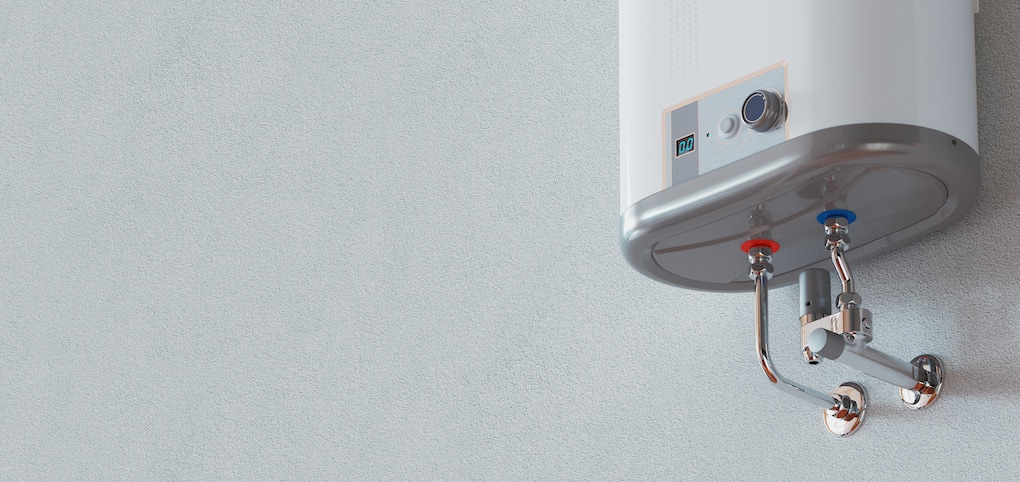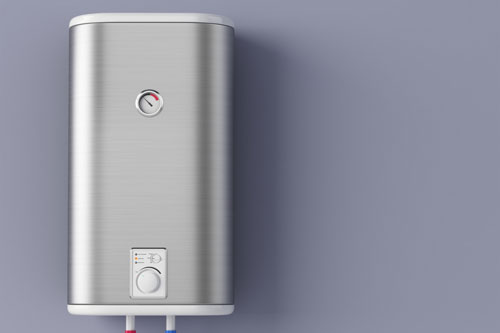In the bustling rhythm of daily life, we often take for granted the silent heroes working behind the scenes to make our homes comfortable and functional. Among these unsung champions is the water heater, a household essential that provides us with the luxury of hot showers, sanitized dishes, and warm laundry. Yet, despite its indispensable role, many homeowners seldom consider the lifespan of this vital appliance until the day it falters, leaving them in an icy surprise during their morning shower.
The question lingers: How long do water heaters really last? In a world where appliances are constantly evolving, understanding the longevity of our water heating systems becomes pivotal knowledge. Is your trusty old tank on its last legs, or can it soldier on for a few more years? In this insightful exploration, we delve deep into the world of water heaters, unveiling the factors that influence their lifespan, the warning signs that indicate trouble, and the maintenance practices that can extend their operational years. Join us as we unravel the mysteries behind this essential household companion, empowering you to make informed decisions about your home’s hot water supply.
Types of Water Heaters

Tank Water Heaters:
Tank water heaters, also known as storage water heaters, have been a staple in households for decades. They store and heat a significant amount of water within an insulated tank, ensuring hot water is readily available whenever you need it. These heaters are relatively affordable and come in various sizes to accommodate different household demands. However, they do have a limited capacity, and once the hot water in the tank is used up, you might need to wait for the heater to refill and reheat the water.
2. Tankless Water Heaters:
Tankless water heaters, or on-demand water heaters, have gained popularity for their energy efficiency and space-saving design. Unlike tank heaters, they heat water directly as it goes through the unit, providing a continuous supply of hot water. Since they don’t store preheated water, they are highly energy-efficient, saving you money on utility bills in the long run. Tankless water heaters are especially beneficial for smaller households where hot water demand is moderate.
How Long Does a Tank Water Heater Last? Factors, Damages, and Maintenance
Tank water heaters, while reliable, aren’t immune to wear and tear. Understanding their typical lifespan and implementing proper maintenance can significantly prolong their efficiency. On average, a well-maintained tank water heater can last between 8 to 12 years. However, this duration is influenced by several factors.
Factors Influencing Lifespan:
- Quality of the Unit: High-quality tank water heaters, usually made of durable materials, tend to last longer. Investing in a reputable brand can make a difference in longevity.
- Water Quality: The mineral content in your water can lead to sediment buildup inside the tank, causing corrosion and reducing efficiency. Hard water areas are particularly prone to this issue.
- Usage Patterns: A household with a higher demand for hot water will put more strain on the water heater, potentially shortening its lifespan. Conversely, a smaller household might get more years out of their unit.
- Installation and Ventilation: Proper installation and ventilation are crucial. Poorly installed heaters or inadequate venting can lead to overheating, pressure buildup, and subsequent damage.
- Maintenance Practices: Regular maintenance is key to maximizing a tank water heater’s lifespan.
Common Damages:
- Sediment Buildup: Over time, minerals present in water accumulate at the bottom of the tank, forming a layer of sediment. This buildup can insulate the heating element, making it less efficient and leading to overheating.
- Corrosion: Corrosion, often caused by the reaction between metal and water, weakens the tank structure. A corroded tank can eventually develop leaks, leading to water damage.
- Pressure and Temperature Fluctuations: Rapid changes in pressure and temperature stress the tank, potentially causing cracks or leaks.
Maintenance Tips for Maximum Lifespan:
- Regular Flushing: Periodically flushing the tank to remove sediment buildup helps maintain its efficiency. This process involves draining a few gallons of water from the tank to eliminate sediments.
- Anode Rod Inspection: Anode rods are sacrificial components that attract corrosive elements, protecting the tank. Regularly inspect and replace them if they are significantly corroded.
- Temperature Setting: Set the water heater’s temperature to a moderate level. Extremely high temperatures can accelerate sediment buildup and cause overheating.
- Pressure Valve Testing: The temperature and pressure relief (TPR) valve should be tested at least once a year to ensure it’s functioning correctly. This valve releases excess pressure and prevents the tank from exploding.
- Professional Inspection: Schedule an annual inspection by a professional plumber. They can assess the overall condition, check for signs of corrosion, and perform necessary maintenance tasks.
How Long Does a Tankless Water Heater Last? Factors, Damages, and Maintenance

Tankless water heaters, heralded for their energy efficiency and on-demand hot water supply, are robust appliances designed to withstand the test of time. While they generally have a longer lifespan than traditional tank water heaters, their durability is contingent upon several factors.
Factors Influencing Lifespan:
- Quality of the Unit: Opting for a high-quality tankless water heater from a reputable brand can significantly impact its lifespan. Well-constructed units using durable materials are more likely to endure years of use.
- Water Quality: Just like with tank water heaters, the mineral content in your water can affect a tankless system. Hard water can lead to mineral buildup, affecting the unit’s efficiency over time.
- Usage Patterns: Tankless water heaters are ideal for households with varying hot water demands. However, excessive usage or demands beyond the unit’s capacity can strain its components and potentially reduce its lifespan.
- Proper Sizing: Ensuring that the tankless water heater is appropriately sized for your household’s hot water needs is crucial. An undersized unit might overwork itself, leading to premature wear and tear.
- Professional Installation: Proper installation by a qualified technician is essential. Incorrect installation can cause operational issues, potentially damaging the unit.
Common Damages:
- Mineral Buildup: Hard water can cause scale buildup within the heat exchanger, reducing its efficiency. Regular descaling, depending on your water’s hardness, is necessary to maintain optimal performance.
- Overheating: If the demand for hot water exceeds the unit’s capacity, it can overheat, stressing internal components and affecting longevity.
- Corrosion: While tankless water heaters are less susceptible to corrosion than tank models, it’s still a possibility, especially in areas with corrosive water.
Maintenance Tips for Maximum Lifespan:
- Regular Descaling: Tankless water heaters benefit from periodic descaling. The frequency depends on your water’s hardness. Consult the manufacturer’s guidelines for specific instructions on descaling.
- Proper Ventilation: Ensure proper ventilation to allow for the dissipation of heat. Adequate airflow prevents overheating and extends the unit’s life.
- Water Softening: Consider installing a water softener if you live in an area with hard water. Softened water reduces mineral buildup, preserving the efficiency of the unit.
- Professional Maintenance: Schedule regular maintenance with a professional technician. They can inspect the system, clean internal components, and address any potential issues before they escalate.
- Temperature Monitoring: Keep an eye on the unit’s temperature settings. Extreme temperatures can stress the system. Adjust the settings as necessary to prevent overheating.
